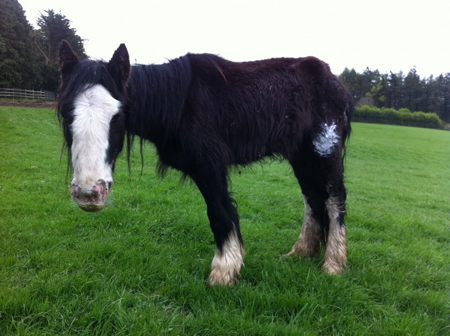
When presented with the challenge of feeding an underweight horse we must first try to address the question ‘why is this horse underweight?’ some, but not all underweight horses and ponies are the victims of neglect or inappropriate care, others may be in a very caring environment however do not seem to be thriving on their current feeding/exercise/training programme. Some common issues that can affect body condition include:
- Parasite infestation
- Teeth problems
- Digestive tract issues
- Underlying or undiagnosed disease
- Pain from an undiagnosed lameness or other condition
- Environmental issues
- Inappropriate diet
It is important to consult with suitable equine professionals to address the above issues (or rule them out) in conjunction with examining the feeding programme of your horse.
In terms of the diet, the energy content is going to be critical in terms of achieving weight gain. Attention should also be paid to the quality and source of the energy in the diet. Good quality forage and fibrous ingredients are the safest source of energy for horses that are severely undernourished. Many concentrate feeds contain ‘Super Fibres’ which are a highly digestible source of energy. Starch from cereals will increase the energy concentration of the diet; if the cereals in the diet are toasted or flaked this will help to increase their digestibility. However, care should be taken to avoid starch overload – look for feeds that contain moderate starch levels coming from highly digestible ingredients and feed little and often. Concentrate feeds such as those in the Gain range that contain Yea-sacc a live yeast culture have the added benefit that this product has been shown to improve fibre digestion and also helps to stabilise the pH of the hindgut. Oil or Fats in the diet will increase the energy density of the diet and horses are usually very tolerant of high fat diets providing they are introduced gradually.
If your horse has been severely undernourished I would recommend that you base their diet around high quality forage and gradually introduce a low – moderate starch, high energy feed such as Gain Freedom or Elite 10 cubes building up the quantities to recommended feeding rates over a period of time. If you have concerns at any stage it is advisable to consult with a feed nutritionist, vet or other equine professional to ensure you are on the right path to weight gain.
Joanne Hurley is a nutrition specialist with Gain Horse Feeds. She holds a Masters in Animal Nutrition and Production from UCD. She is based at Gain Horse Feeds Office in Bridge Street, Portlaoise, Co Laois and can be contacted on 087-7958573 or by email at jhurley@glanbia.ie

Leave a Reply